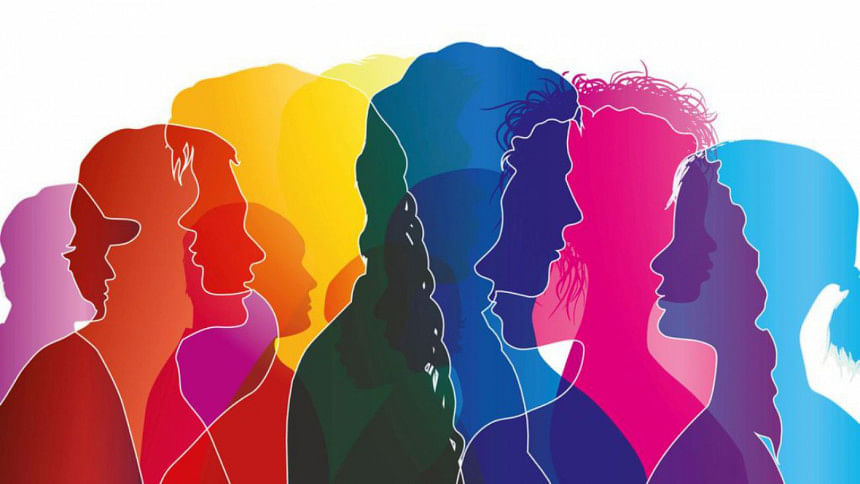What this election means for young voters

Contrary to popular belief that our young generation is indifferent about politics, our universities, colleges and even schoolgoing children have proved in the recent past that they are not only politically conscious but also willing to play their part when it's time. This was proved during the recent quota reform movement as well as the road safety movement. A particular slogan during the road safety movement comes to mind which said: "the state is under construction." Only those who are politically conscious can come up with such a powerful expression.
Ahead of the 11th parliamentary election, young voters have expressed their thoughts to different newspapers and media outlets including The Daily Star, which has helped us learn to some extent as to what their perceptions are about this election.
Sumaiya Jahid, a student of Dhaka University, in a talk show of The Daily Star, said that she, along with her friends, want to vote but for that to happen, there has to be an environment that is free from fear and intimidation—an environment that seems to be sorely absent right now.
While talking to some students of Dhaka University recently, I came to know that many of the students who are first-time voters are not sure whether they should go to vote as they do not think the election would be a fair one. They also told me that they don't think there is a level playing field and that they are worried about violence erupting during the election.
But suppose, there is a free and fair election. What are the factors that would make young voters go vote?
What political analysts say is that young voters could play a deciding role in this election if they vote. In the last 10 years, the number of young voters has increased to 2 crore and 25 lakh. As per government statistics, currently 22 percent of voters are aged between 18 and 28. And in the upcoming election, 1 crore and 23 lakh young voters will vote for the first time.
Unemployment is the biggest issue for today's young generation. According to government statistics, currently there are 27 lakh unemployed people in the country and although every year 20 lakh people enter the job market, new job opportunities are created only for some 13 lakh people. According to the ILO, within the last seven years, the rate of youth unemployment has doubled. So young voters will certainly consider voting for those who they think will actually address this problem.
According to political analysts, freedom of expression, access to information and technology, eradicating corruption, safety of women, and improvement of the education system are some other issues that concern young voters the most.
So needless to say, the major political parties' stance on controversial laws that restrict people's freedom of expression is something that young voters will consider before they go to cast their votes. Clearly, young voters will not take lightly the EC's decision to block social networking sites and messaging apps such as Facebook, WhatsApp, IMO, etc., especially on Election Day.
This generation is very enthusiastic about technology. In 2017, Prothom Alo carried out a survey among young people across the country whose age range was between 15 and 30 and found that 41 percent of them use internet regularly. And there is no doubt that the rate is increasing. Young voters will appreciate any decision that will give them increased access to technology. Policy decisions such as reducing the cost of the internet will certainly have a positive impact on young voters.
Although both the Awami League and the BNP have incorporated many of these issues in their election manifestos, whether or not their promises can actually attract first-time voters still remains a question.
In 2008, the AL pledged to build a Digital Bangladesh. In their new manifesto, the party has promised to introduce 5G by 2023 as part of their vision of a Digital Bangladesh. Zero tolerance to corruption is another pledge the party has made.
The BNP, on the other hand, has promised to create one crore new jobs in the next five years, ensure people's right to freely express their views even if they go against the government, repeal the Digital Security Act as well as other controversial laws that restrict people's freedom of expression, etc. Among the other promises that the party has made are providing unemployment benefits, ensuring safety of women, reducing the cost of internet use, etc., which may successfully attract young voters.
In 2008, the AL pledged in its election manifesto that they would give jobs to at least one member of every family across the country, which was more rhetoric than a real pledge. This time such rhetoric might not work when it comes to getting the votes of young people.
Moreover, young voters want to vote for honest and competent candidates. Many of them would prefer voting for a young candidate who will understand their needs. Thus, there is no denying the fact that we need more young blood in our politics who can work hard to earn the confidence of young voters.
But even if the issues that matter most to young voters remain unaddressed, and even if there are issues that disappoint this important demographic ahead of the election, they might still go cast their votes if only it is ensured that they can vote in a peaceful environment, without any intimidation from any quarters, and if their votes are not already cast.
Naznin Tithi is a member of the editorial team at The Daily Star.

 For all latest news, follow The Daily Star's Google News channel.
For all latest news, follow The Daily Star's Google News channel. 



Comments